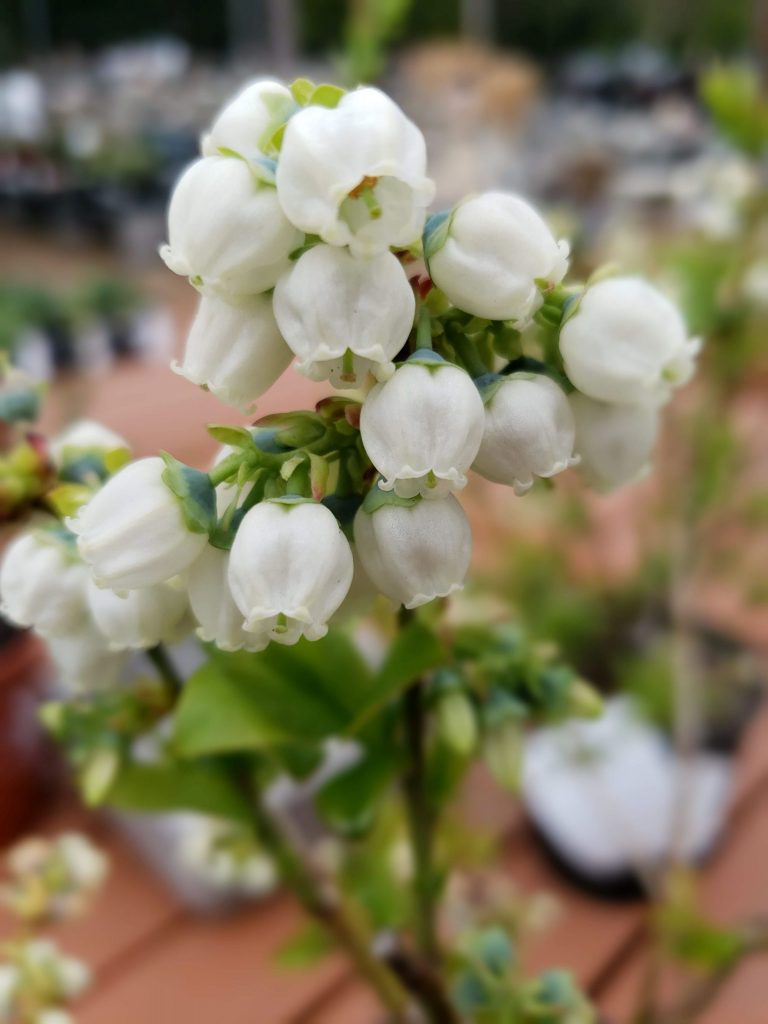From pies to helping bees-blueberries are superstars!
Blueberries being planted at Laurelwood? Are our volunteers planning to make pies? No, blueberry bushes are being installed at Laurelwood not for their fruit, but due to the many benefits they offer bees, other insects, and birds
Blueberries flower early in the spring offering nectar and pollen to many insects. According to Doug Tallamy, the leading expert on native plant and insect interactions, in the MidAtlantic, blueberries support 9 different specialist bees that can’t survive without the pollen of blueberries. You see, as babies these bees obtain protein from pollen but can only use the pollen of blueberries. There are other specialist bees with similar relationships to other plants, but blueberries are one of the top plants for specialist bees.

Blueberry shrubs also support numerous butterflies and moths, including the spring azure, a diminutive butterfly that is often noticed by gardeners. The caterpillars of these Lepidoptera feed on the leaves of blueberries. If you grow these plants you are aware that they are highly desired by birds, in fact, it is likely that the birds got to them before you did! If this is the case, know that you are contributing to helping our avian friends.
In nature, blueberries can be found in oak forests and due to their preference for acid soils can be grown in gardens with many conifers where soils tend to be acidic. Highbush blueberry can be used as a hedge and its leaves provide attractive fall color. Depending on the species of blueberry, they can grow in dry to moist soils and full sun to partial shade.
New Brunswick, Canada has a cautionary tale for us. Years ago, pesticides being used to manage the spruce worm in nearby forests almost completely wiped out the native bees that pollinate blueberries, decimating this crop. The plants themselves appeared healthy, yet failed to produce fruit. Blueberry farmers sued in a case that made it to the Canadian Supreme Court and eventually got the government to restrict the use of pesticides. It would take a number of years before the population of native bees would increase enough to once again produce a bountiful blueberry crop.
Consider helping bees, lepidoptera and birds by planting blueberries. As a bonus, you might even be able to bake a pie.
For more information on blueberries, specialist bees and other top plants for specialist bees watch Gardening for the Bees on Native Plant Channel.
